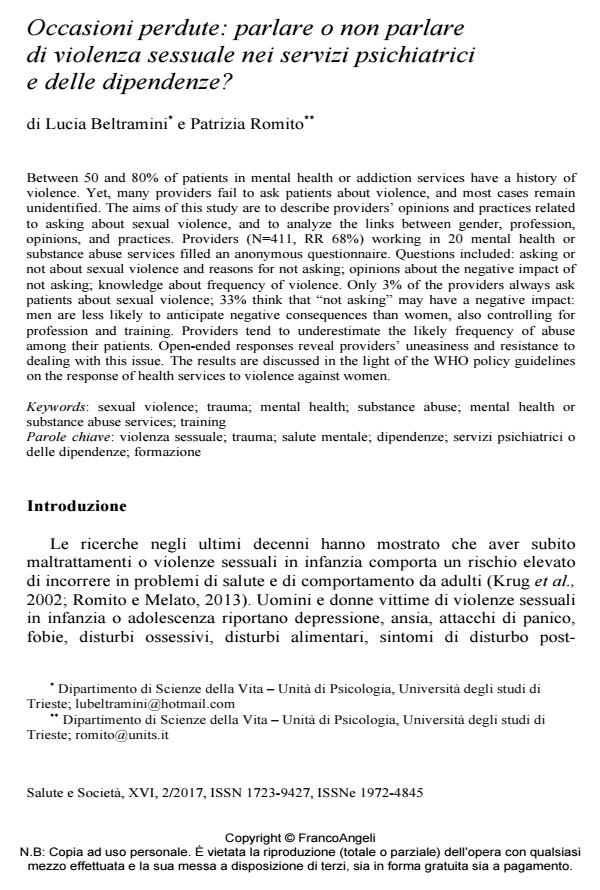Occasioni perdute: parlare o non parlare di violenza sessuale nei servizi psichiatrici e delle dipendenze?
Journal title SALUTE E SOCIETÀ
Author/s Lucia Beltramini, Patrizia Romito
Publishing Year 2017 Issue 2017/2
Language Italian Pages 18 P. 165-181 File size 134 KB
DOI 10.3280/SES2017-002012
DOI is like a bar code for intellectual property: to have more infomation
click here
Below, you can see the article first page
If you want to buy this article in PDF format, you can do it, following the instructions to buy download credits

FrancoAngeli is member of Publishers International Linking Association, Inc (PILA), a not-for-profit association which run the CrossRef service enabling links to and from online scholarly content.
Between 50 and 80% of patients in mental health or addiction services have a history of violence. Yet, many providers fail to ask patients about violence, and most cases remain unidentified. The aims of this study are to describe providers’ opinions and practices related to asking about sexual violence, and to analyze the links between gender, profession, opinions, and practices. Providers (N=411, RR 68%) working in 20 mental health or substance abuse services filled an anonymous questionnaire. Questions included: asking or not about sexual violence and reasons for not asking; opinions about the negative impact of not asking; knowledge about frequency of violence. Only 3% of the providers always ask patients about sexual violence; 33% think that "not asking" may have a negative impact: men are less likely to anticipate negative consequences than women, also controlling for profession and training. Providers tend to underestimate the likely frequency of abuse among their patients. Open-ended responses reveal providers’ uneasiness and resistance to dealing with this issue. The results are discussed in the light of the WHO policy guidelines on the response of health services to violence against women.
Keywords: Sexual violence; trauma; mental health; substance abuse; mental health or substance abuse services; training
Lucia Beltramini, Patrizia Romito, Occasioni perdute: parlare o non parlare di violenza sessuale nei servizi psichiatrici e delle dipendenze? in "SALUTE E SOCIETÀ" 2/2017, pp 165-181, DOI: 10.3280/SES2017-002012